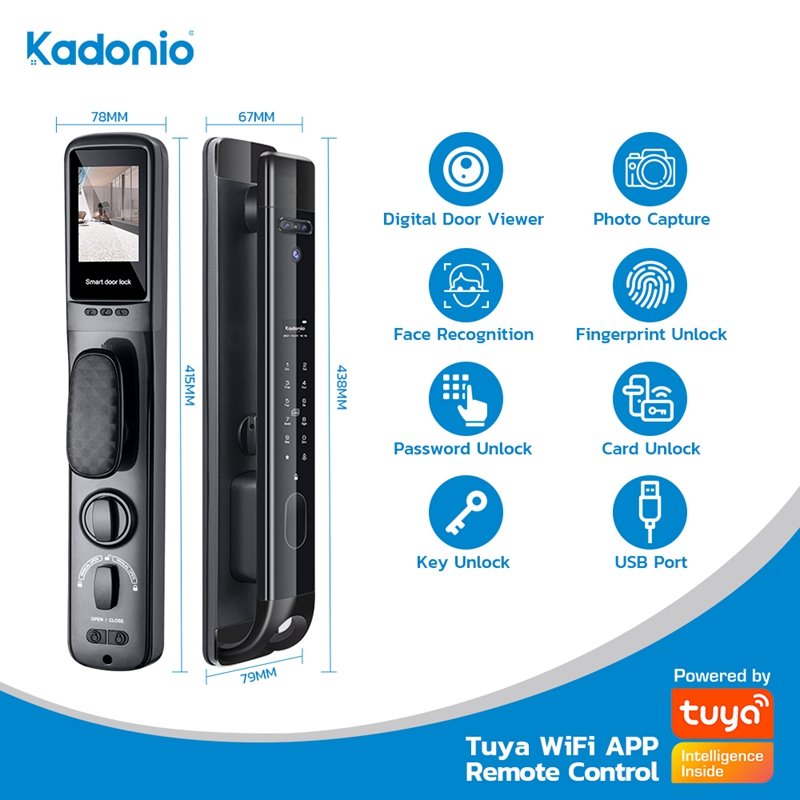As society continues to age, the needs of senior citizens are gaining increasing attention. In this context, smart door locks have emerged as a crucial choice to meet the demands of the elderly. By employing advanced technology, smart locks offer seniors a more convenient and secure home experience, while also contributing positively to an aging society.
One of the most common types of digital smart door locks is the fingerprint lock. For older adults, traditional mechanical locks may present difficulties in turning keys, but fingerprint locks provide an easy solution. Senior citizens only need to lightly touch the sensor with their fingerprint, and the smart lock swiftly recognizes the biometric information and unlocks the door. This feature enhances both convenience and security, enabling seniors to effortlessly open doors even when their hands are full. Additionally, fingerprints are unique and challenging to replicate, effectively preventing security risks that may arise from key loss or password leaks.
Apart from fingerprint smart locks, facial recognition smart locks are also gaining popularity among the elderly. Facial recognition technology captures facial features through a camera, enabling efficient and accurate identification. Seniors simply need to stand in front of the door, and the smart lock promptly verifies their identity and unlocks the door. This contactless operation method is particularly suitable for seniors with limited joint flexibility or mild hand disabilities. Furthermore, the integration of facial recognition smart locks with home automation systems allows for remote monitoring and unlocking, providing elderly individuals with a more convenient and secure living environment.
Smart locks not only provide convenience to senior citizens but also alleviate the pressures of caregiving in an aging society. With more adult children living independently and working outside the home, the safety and health of older adults have become a significant concern. The application of smart locks offers elderly individuals more opportunities for independent living, extending the time they can remain at home with a sense of autonomy. Additionally, the connection of smart locks with home automation systems allows adult children to keep track of their parents’ well-being in real-time, enabling timely care and support, bridging the gap created by physical distance.
Nevertheless, in addressing the challenges of an aging society, smart locks must overcome certain obstacles. Technical security is a crucial factor to consider when seniors use smart locks. Manufacturers must ensure that the fingerprint and facial recognition systems are highly accurate and secure to prevent information leakage or potential hacker attacks. Furthermore, seniors often exhibit lower acceptance levels of new technologies, necessitating simple and straightforward smart lock designs to avoid complicating the setup process.
In conclusion, smart locks serve as a novel solution to tackle the challenges of an aging society. They cater to the needs of senior citizens, offering a more convenient and secure home experience, while also alleviating the pressures of caregiving. By continuously enhancing technical security and user-friendliness, smart locks have the potential to become valuable assistants in the lives of elderly individuals, empowering them to lead more independent, safe, and enjoyable lives in their golden years.
Post time: Jul-21-2023





